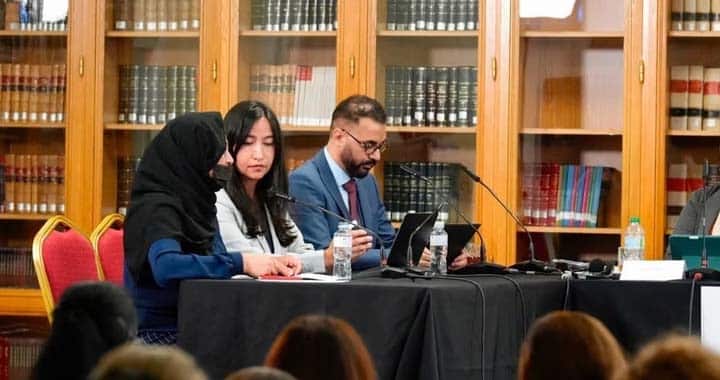A female Afghan journalist delivered a harrowing testimony at the People’s Tribunal for Afghan Women in Madrid, describing her detention and mistreatment at the hands of Taliban forces. She recounted how the Taliban blocked journalists’ gatherings, arrested reporters, and detained her at gunpoint simply for advocating press freedom.
The journalist, who lost her job after the Taliban’s return to power and the imposition of strict media restrictions, said armed fighters raided her home without cause, threatened her, and beat her husband severely. “After months of fear and hardship, I tried to flee Afghanistan,” she told the tribunal, “but Taliban guards beat me and my son at the Pakistan border.”
Her husband remains in critical condition, and the family continues to suffer from severe psychological trauma. “I have nightmares every night, imagining the Taliban attacking again,” she said, adding that this fear is shared by many Afghan women and female journalists still trapped under Taliban rule.
She further testified that Taliban forces extract forced confessions and torture detainees, expressing frustration that “the voices of Afghan women are not being heard.”
Hamid Obaidi, head of the Afghan Media Support Organisation, said the Taliban have imposed at least 25 restrictions on the media over the past four years. He urged that the documented violations be submitted to international institutions, emphasising that the persecution of women journalists remains one of the central issues under review at the tribunal.
The Madrid proceedings have drawn support from more than 100 rights organisations, which describe the event as a landmark step toward accountability for gender apartheid in Afghanistan. Meanwhile, a separate UNICEF report this week revealed another layer of the crisis: one in four Afghan children now suffers from anxiety and one in seven from depression, underscoring how repression, conflict, and deprivation are taking a profound psychological toll on Afghanistan’s most vulnerable.





